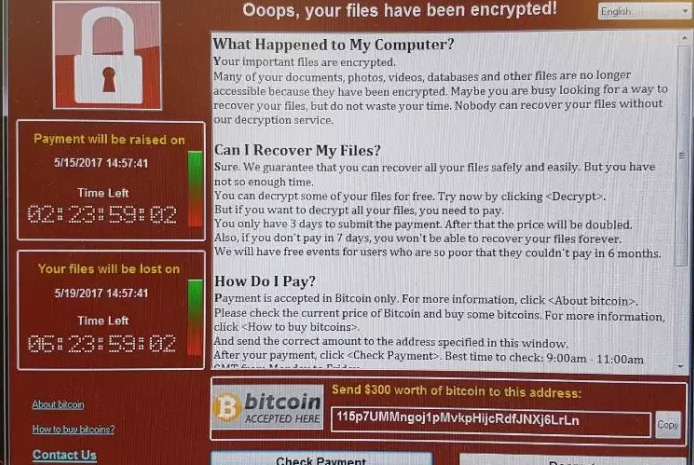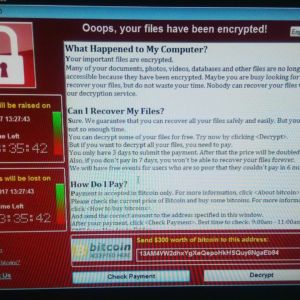
A large number of hospitals, GPs, and walk-in clinics across England have been locked down by a ransomware attack, reports suggest. There are also some reports of a ransomware attack hitting institutions in Portugal and Spain, with telecoms provider Telefonica apparently hit hard. Further attacks have been reported in Russia, Ukraine, and Taiwan. Batten down the hatches: we might be in the middle of a global ransomware attack.
Multiple sources point to this ransomware attack being based on the EternalBlue vulnerability, which was discovered by the NSA but was leaked by a group calling itself Shadow Brokers last month. Update: Read our analysis of the Wanna Decryptor ransomware and its NSA-derived/Shadow Brokers provenance.
NHS Digital has confirmed the attack and issued a brief statement, stating that there's no evidence that patient data had been accessed and that the attack was not specifically targeted at the NHS. At this point it isn't clear whether a central NHS network has been knocked offline by the ransomware or whether individual computers connected to the network are being locked out. In any case, a number of hospitals and clinics are reporting that their computer systems are inaccessible, and some telephone services are down too.

The Blackpool Gazette, which seems to have the most detailed report of the incident, has some pretty scary quotes from local hospitals and GP surgeries. The Blackpool Victoria Hospital has reportedly pleaded for patients to only attend A&E for life-threatening emergencies; "Please avoid contacting your GP practice unless absolutely necessary. Should you wish to obtain non-urgent medical advice please call 111," a spokesperson is quoted as saying.
Blackpool Gazette also spoke to a hospital IT worker who said that "five or six" NHS trusts had been taken offline by the malware. As of 15:30, NHS Digital said that 16 NHS organisations had reported being affected by the ransomware.
"User shared drive access is down," the IT worker is quoted as saying. "E-mails slowly going. Non-essential PCs are being shut down, and waiting times are estimated to increase. There's nothing we can do except sit back and watch it collapse. The ransom message is exactly the same here, but with different bitcoin links, which is standard. It's a goodbye to the IT systems."
The East and North Hereford NHS Trust website shows the following message: "We're currently experiencing significant problems with our IT and telephone network, which we're trying to resolve as soon as possible. This means that people will have difficulty phoning us for the time being – please bear with us. Apologies for any inconvenience."
Foursys, an IT company, issued a statement saying 11 of its NHS customers have been affected by the ransomware.
Another screenshot of the ransomware shared by BBC Radio 5 Live shows the name "Wana Decrypt0r 2.0" in the title bar, which sounds very similar to Wanna Decryptor, a previously known piece of ransomware. The NHS Digital statement concurs: "The investigation is at an early stage, but we believe the malware variant is Wanna Decryptor."
The ransomware deadline appears to be at 3pm on May 19, exactly a week from now. We have reported on some isolated incidents of hospital ransomware in the past, both in the UK and the US, though the scale of this attack appears to be much larger than normal.
This story has been updated multiple times; we'll follow up with some technical analysis later today.
Listing image by Sheila Sund / Flickr
reader comments
109